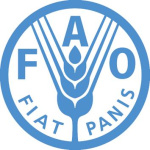- Settore: Agriculture
- Number of terms: 87409
- Number of blossaries: 0
- Company Profile:
Established in October 1945 with the objective of eliminating hunger and improving nutrition and standards of living by increasing agricultural productivity, FAO coordinates the efforts of governments and technical agencies in programs for developing agriculture, forestry, fisheries, and land and ...
Treatment of moist seeds at low temperature (+2° - +4°C) to break dormancy.
Industry:Biotechnology
True sexual reproduction involving the fusion of male and female gametes and the formation of a zygote.
Industry:Biotechnology
Tumour-inducing plasmid. A giant plasmid of <i>Agrobacterium tumefaciens</i> that is responsible for the induction of tumours in infected plants. Ti plasmids are used as vectors to introduce foreign DNA into plant cells.
Industry:Biotechnology
Two centrally located nuclei in the embryo sac that unite with a second sperm cell in a triple fusion. In certain seeds, the product of this fusion develops into the endosperm.
Industry:Biotechnology
Two enzymes (A and B) found in pancreatic juice. Their role is to remove the C-terminal amino-acid from a peptide; the A form removes any amino acid; the B form removes only lysine or arginine. Used when sequencing peptides.
Industry:Biotechnology
Two laws summarizing Gregor Mendel's theory of inheritance. The Law of Segregation states that each hereditary characteristic is controlled by two `factors' (now called alleles), which segregate and pass into separate germ cells. The Law of Independent Assortment states that pairs of `factors' segregate independently of each other when germ cells are formed.
Industry:Biotechnology
Two or more interdependent genes, such that (in the case of dominant complementarity) the dominant allele from either gene can only produce an effect on the phenotype of an organism if the dominant allele from the other gene is also present; or (in the case of recessive complementarity) only double homozygous recessive show the effect.
Industry:Biotechnology
Two or more stretches of DNA within a single molecule which have the same nucleotide sequence in the same orientation. Direct repeats may be either adjacent to one another or far apart on the same molecule. For example
TATTA...TATTA
ATAAT...ATAAT
Industry:Biotechnology
